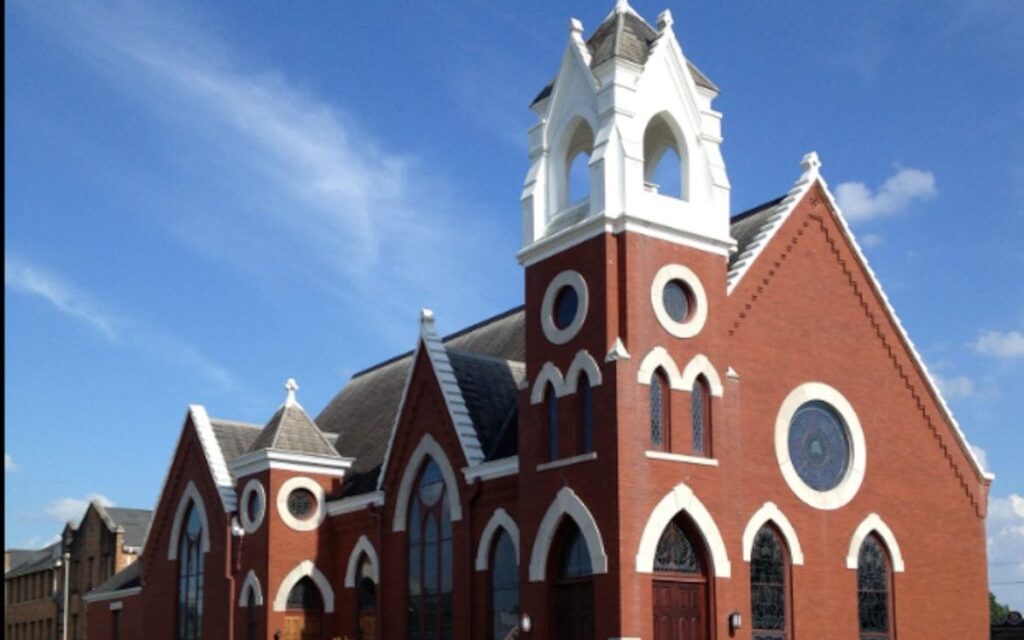A 177-year-old Demopolis church has sued the Alabama-West Florida Conference arguing that it should be allowed to leave the United Methodist Church and take its property with it.
The First Methodist Church of Demopolis, founded in 1847, says it has owned its own property throughout its history and has never signed a trust clause giving ownership to the denomination.
Demopolis First was one of more than 40 churches in a group lawsuit last year that went all the way to the state Supreme Court.The Alabama Supreme Court ruled that those churches would have to take their case to the church’s court, not state courts.
The Demopolis congregation, one of the plaintiffs in that case, filed its new solo lawsuit on Aug. 16 in Marengo County.
It’s now one of at least three churches to file individual lawsuits.
Harvest Church in Dothan sued individually and also argued that it could prove its historic ownership had never been signed over in a trust clause. The state Supreme Court sent that case back to a lower court for a ruling, denying the conference’s request that the lawsuit be dismissed. Harvest voted to go independent in 2022.
Guy’s Chapel, a 114-year-old church in Bay Minette, last month sued the Alabama-West Florida Conference in an effort to leave, saying it could prove its historic ownership of its property had never been relinquished by signing documents for the denomination to hold it in trust.
On Friday, the state Supreme Court rejected a rehearing request in the group case of Aldersgate of Montgomery, Armstrong, Baggetts Chapel, and Black Creek churches, et. al., vs. the Alabama-West Florida Conference, affirming its May 31 decision saying it was a matter for church courts.
The United Methodist Judicial Court is in the process of hearing points of church law raised by churches that have so far been denied disaffiliation, which would allow them to negotiate to leave the denomination and take their property with them.
The judicial court of the United Methodist Church will take up the issue of clarifying how Alabama churches that want to leave may still be allowed to depart the denomination.
In response to lawsuits filed against it last year, the Alabama-West Florida Conference issued the following response:
“The Alabama-West Florida Conference of the United Methodist Church is aware of several churches in our conference that have filed a lawsuit requesting the court intervene in the disaffiliation process. These churches have not met the eligibility requirements for voting to disaffiliate under the Book of Discipline. The Board of Trustees of the AWF Conference has worked diligently since Annual Conference 2023 to process local churches seeking disaffiliation under Paragraph 2553 of the Book of Discipline in preparation for the November Special Called Annual Conference. We are saddened by this litigation, but we are confident the process we have adhered to is fair and just. Our primary focus continues to be on the mission of The United Methodist Church to make disciples of Jesus Christ for the transformation of the world. That is unchanging. We pray for all involved and will model grace, love and kindness throughout this process.”
The exit allowed under Paragraph 2553 expired at the end of 2023. Churches that filed the group lawsuit argued the conference was trying to “run out the clock” on them by not allowing them to leave by the end of the year. The denominational Judicial Council will now have to rule on whether they can be allowed to leave and take their property through another provision, such as shutting down churches and letting congregations negotiate to buy their property.
United Methodists had been in a decades-long decline losing several million members from the 1968 through the 2020 pandemic before debates over whether to embrace LGBTQ rights finally split the church in 2022-23.
The United Methodist General Conference earlier this year voted to allow same-sex marriage and ordination of LGBTQ clergy, reversing longstanding policy. A breakaway group, the Global Methodist Church, will maintain those prohibitions.
Statewide in Alabama, more than half of United Methodist congregations disaffiliated – about 555 churches. Most of those departures have taken place since 2022. Nationwide, 7,600 churches, about a quarter of the denomination, left.











